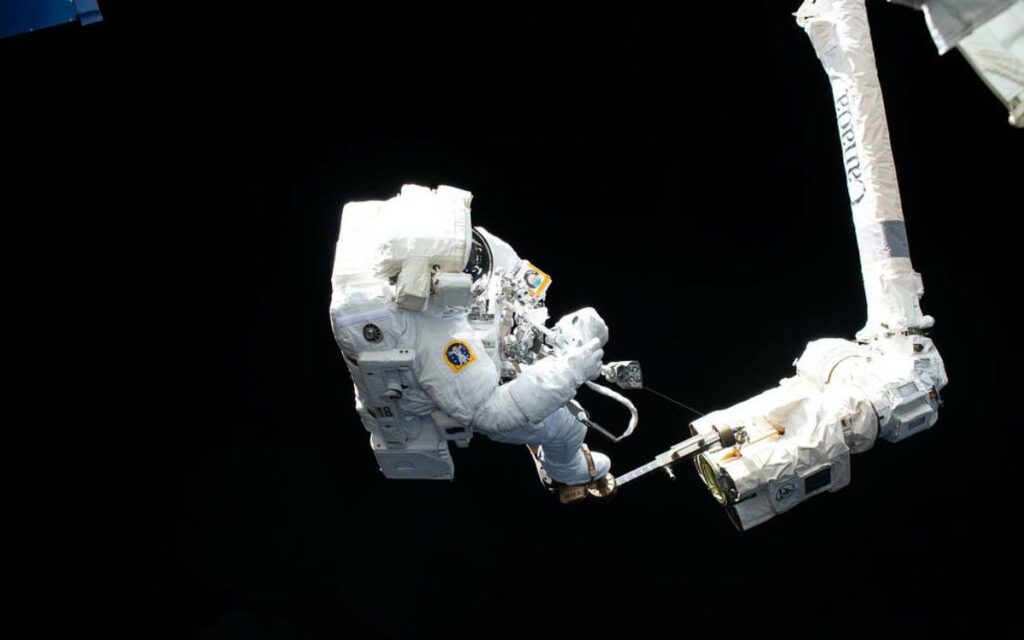
Launched in late 2021, the ‘Deep Space Healthcare Challenge’ is looking for innovative technological solutions to address the unique issue of remote, autonomous healthcare delivery. Photo credit: Canadian Space Agency
If Elon Musk gets his way, human beings will reach Mars by decade’s end.
The near two-year roundtrip between Earth and the Red Planet will require crew members to autonomously detect, diagnose, and treat with limited supplies any ailments that may arise over the long journey.
To help address this issue, the Canadian Space Agency, in partnership with Impact Canada, launched the Deep Space Healthcare Challenge in late 2021.
The federal challenge asked Canadian innovators to develop novel diagnostic and detection solutions that can support at-distance healthcare delivery for remote communities on Earth now and be adapted for deep space travel later.
Businesses, not-for-profits, and academic institutions from across the country answered the call, and recently 20 semi-finalists from the design stage of the competition were announced, with representation from coast to coast.
Successful first stage applicants were judged based on their concept’s solution adoption potential, effectiveness, autonomy, innovation, ease-of-use, reliability, and context sensitivity.
Seven of the semi-finalists hail from Ontario, with two from right here in Hamilton: McMaster University and the Centre for Surgical Invention and Innovation.
McMaster was selected for its design of a wearable heart-tracker that provides real-time monitoring of cardiac markers in the fluid that surrounds cells.
The Centre for Surgical Invention and Innovation, a non-for-profit research incubator hosted by St. Joseph’s Healthcare Hamilton and McMaster University, was selected for its ongoing work related to tele-operation. Specifically, the development of an autonomous and tele-operable medical robot for ultra-rapid screening, diagnosis, and treatment of early cancers, as well as other needlescopic interventions.
Both McMaster and the Centre for Surgical Invention and Innovation, alongside the 18 other successful submissions, will be awarded $30,000 in grant funding and move on to stage two of the challenge.
All the semi-finalists now have 10 months to build or modify a proof-of-concept that can generate data in a lab environment. At the end of stage two, participants will be asked to submit preliminary data and an in-depth description of the progress for evaluation.
Up to five finalists will be selected to move on to the last stage of the challenge. The five finalists will be announced in April 2023. They will each receive $350,000 in grant funding and be provided access to a number of supports to help maximize the impact of their technologies.
The successful final teams will have to develop a working prototype that can perform in a simulated remote environment set up by the Canadian Space Agency in fall 2023.
The winner will receive $500,000 in grant funding and be announced in early 2024.
For a full list of the semi-finalists and to learn more about the challenge, the judging panel, and more, head to Impact Canada’s website here.
Impact Canada is a Government of Canada-wide effort that helps departments accelerate the adoption of innovative funding approaches to deliver meaningful results to Canadians. The Impact Canada challenge platform is a core component of the initiative. It allows various federal government departments to issue challenges on a common site and reach a diverse group of problem solvers and innovators.






